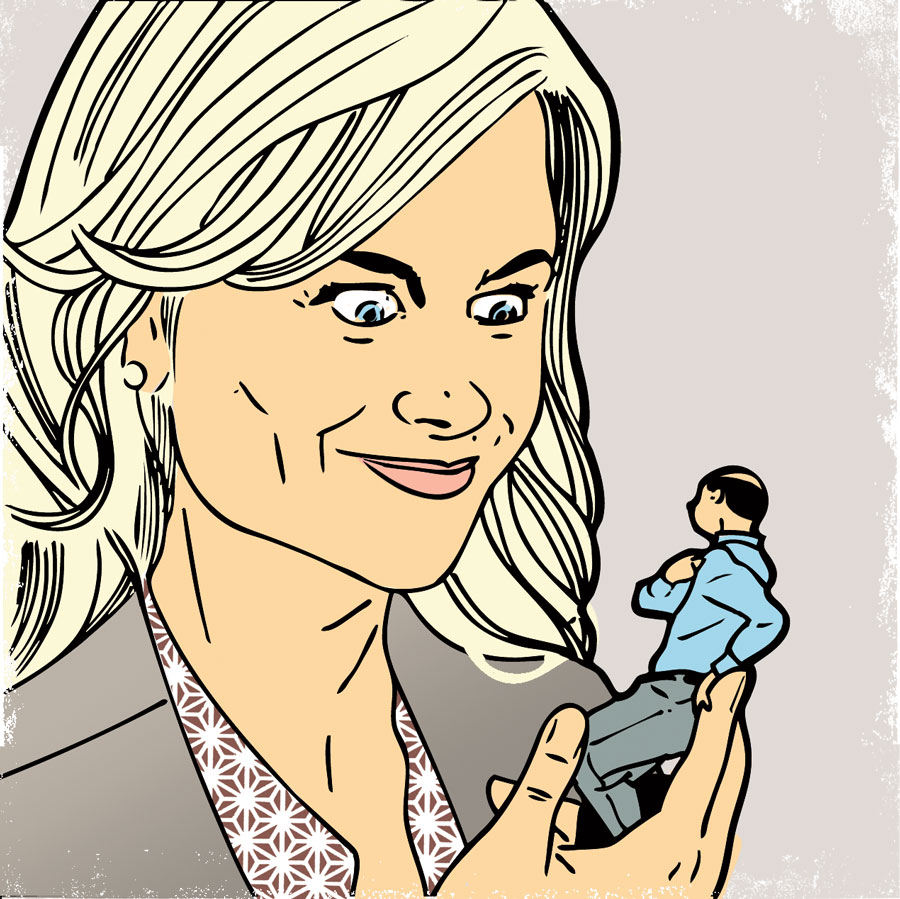
There is nothing exactly like living in Hell, but there is something close to it. In Hell, where I lived for most of 2013 and 2014, there is, as Dante understood, no hope. You wake up every morning realizing your nightmare will continue into your waking hours. The loss you have suffered is permanent. There is no healing, no improvement, but even more important, there is no possibility of any to come. The most unbearable thing about your unbearable life is that you will always be forced to bear it. And in this, you are most like a character in a sitcom.
Ralph Kramden lives in Hell. His get-rich schemes will never work, his wife will always hold him in contempt, his best friend will always be a fool. George Costanza lives in Hell. He will never find happiness or love or even a decent job, because our enjoyment is dependent on his miseries. He is oblivious to those of us who watch him, and thus cannot know that his constant punishment by fate provides us with joy. I do not know if his knowing this would make him feel any better.
In the midst of my horrific divorce, living alone, desperate to save my relationship with my children and failing, I occasionally wondered if somebody watching from behind a fourth wall might find it enjoyable. I might have — if I could've turned it off. And on a number of particularly dark evenings, I considered doing just that.
And then I started watching Parks and Recreation.
Parks and Rec is a sitcom, of course, in the Office-pioneered faux-documentary style, and it has the trappings of a sitcom: a workplace setting; a cast of characters who constantly bicker, argue, and scheme; and issues that seem earthshaking to all concerned but can still be resolved within half an hour, less commercials. But it is different from all other sitcoms in one existentially significant way: Things change.
The show’s theme is announced in episode 1, in which Leslie Knope, the officious, eager small-town bureaucrat, listens to a citizen complain about some problem and demand that she do something about it, and Leslie says to her, “OK. I will do something about it. I will help you.” In some if not all other sitcoms, the earnestness of her determination would then be undercut by her own hilarious incompetence. In Parks and Rec, she eventually succeeds, in this and in other projects, and thus finds a way out of Hell.
I ended up having to ration myself to one episode a night — two, on the really tough days, when my kids wouldn’t speak to me or I discovered I had been eliminated from yet another cherished family tradition. And every time, I would turn on the TV and marvel at these people — hilariously flawed, petty, silly, unhappy people — who were doing their best to make things better. And every now and then, they would succeed.
Parks and Rec was for me not a diversion. It was church, because it offered salvation, in the promise of change. Escaping Hell is difficult, because sometimes there are too many people who enjoy seeing you there. But with enough effort, and grace, and color-coded folders, it can be done. When Leslie Knope was elected to the Pawnee, Indiana, city council, I wept. And I wept again at the show’s finale, which leaped forward to the then-fanciful future of 2017, when all of the characters had moved on, grown, changed, been rewarded, and found what they had been searching for (though not in the places they had been looking). Parks and Rec taught me how to look forward once again — to the next episode and, finally, to my own life.


